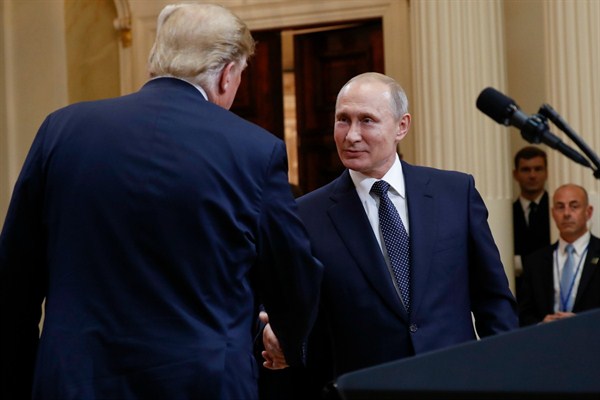Is it already too late to save the liberal international order? That’s what Thomas Wright argues in a recent article in The Atlantic. It’s hard to argue with his reasoning. Clearly, the hoped-for convergence among the world’s great powers around universally accepted rules of the road for the international system has not materialized. In hindsight, it’s probably also true that the challenge—primarily from Russia and China—to the liberal elements of the liberal international order was inevitable.
Rather than continue struggling to impose those ideals on a resistant world, Wright argues, the U.S. should seek to defend them at home and abroad among our allies and partners when and where they come under attack. This defense, which he calls a “free world” strategy, would entail “placing threats to liberty at home at the center of American foreign policy and focusing as much on measures short of general war—such as economic weapons and political interference—as on large-scale military buildups to deter World War III.” Washington should orient its global security alliances toward defending partners from similar threats, “pushing back against neo-authoritarianism in other democracies as well as preventing China and Russia from taking a dominant strategic position in Asia or Eastern Europe.” While accepting the need to cooperate with adversarial illiberal states when interests converge or circumstances dictate, Wright says the U.S. should condition its security ties with illiberal partners—in the Middle East, for instance—on their cooperation toward the broader freedom agenda.
It is a compelling and even attractive argument, putting to rest the Sisyphean task of resuscitating the liberal order, without abandoning the high ideals that underpinned it. But Wright’s essay raises two important questions. First, how would this arrangement function on a practical level? Perhaps more importantly, would it order international relations, or fragment them into parallel and incompatible pathways?

